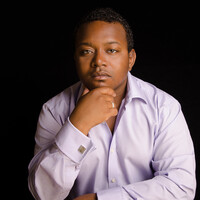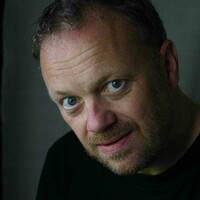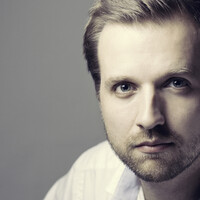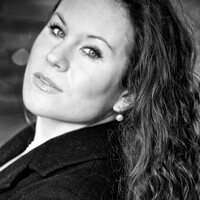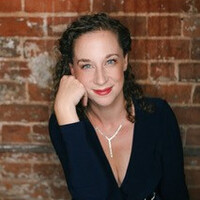
PARTICIPATING CHOIRS
Rochester Cathedral
Rochester Cathedral Choir – Director of Music Scott Farrell
Seventy Chamber Choir – Musical Director Clifford Lister
Holland Boys Choir – Conductor Pieter Jan Leusink
Wiltshire Music Centre
Cantamus – Conductor Michael Daniels
Wiltshire Music Centre Chorus – Conductor Michael Daniels
Saffron Hall
Granta Chorale – Musical Director Janet Wheeler
Alec Hunter Academy Choir – Lead Teacher Jacqui Davies
Anglia Ruskin University Chamber Choir – Conductor Paul Rhys
Blackheath Halls
Trinity Laban Chamber Choir – Conductor Chris Bucknall
Hackney Empire Community Choir – Choir Director Joseph Roberts
Blackheath Goes Gospel – Choir Leader Eleanor Wright
The Royal Greenwich and Blackheath Halls Choir – Conductor Helen Brookes
Octagon Centre, Sheffield
Sheffield Cathedral Choir – Acting Director of Music Joshua Hales
University of Sheffield Chamber Choir – Musical Director Mark McCombs
Sheffield Chorale – Musical Director Neil Taylor
University of Sheffield Gospel Choir – President Sarah Robinson
Lichfield Cathedral
Lichfield Cathedral Chamber Choir – Conductor Martyn Rawles
Members of Staffordshire County Chorus – Conductor Jenny Mason
Lichfield Cathedral School and St Michaels C of E Primary School ‘Music Share’ Choirs – Conductor Cathy Lamb
Lichfield Gospel Choir – Conductor Themba Mvula
Exeter Cathedral
Antiphon – Conductor Matthew Cann
Exeter University Singers – President Miranda Fern
St Peter’s School, Lympstone – Director of Music Chris Hoban
Blackpool Citadel
The Renaissance Singers of Blackburn Cathedral – Director of Music Samuel Hudson
The Capricorn Singers – Musical Director Chrissie Turkington
Blackpool Male Voice Choir – Musical Director Hayley Tarry
Anchorsholme Academy Choir – Headteacher and Musical Director Graeme Dow
St John’s Church, Workington in association with Rosehill
A section of the Cockermouth Harmonic Society – Director Ian Thompson
West Cumberland Choral Society – Director Hugh Turpin
Solway Singers – Director Anthony Peacock
Cockermouth School Chamber Choir – Directors Martin Ulyatt and Fiona Weakley
Lancaster Priory
Lancaster Priory Bach Consort – Musical Preparation Margaret Pattinson
Vox Boys’ Choir – Conductor Don Gillthorpe
Ripley St Thomas CE Academy, Lancaster – Director of Music and Performing Arts Don Gillthorpe
No praise too high for the continuo support from the Old Street Band: a period-instrument ensemble with an unerring feel for idiom.
The Independent
The Old Street Band plays like a charm for Jonathan Peter Kenny; a gorgeous reading, flowing and spruce, that never fails to support the singers and favour the drama.
Whats on Stage
Fabulous setting, lovely to see this in Sheffield
Audience Member, Sheffield
Can I just take this opportunity to say THANK YOU! On behalf of Cantamus, but also WMC, thanks for all your help in making sure the concert went smoothly. We all really enjoyed it and as soon as I left the stage I said, “Can we do it again?!
Clara Atkins, Programme & Events Co-Ordinator, Wiltshire Music Centre
Synopsis
Programme Notes
The St John Passion was first performed in Leipzig on Good Friday 1724. Passions had been recited during Holy Week since at least the 5th century, but it was only around Bach’s time that the passion setting evolved from simple worship to a richer spectacle, involving complex music and singing. Bach’s St John and St Matthew passions helped shape this trend, and were probably unlike anything the people of Leipzig had heard before.
From 1717 to 1723, Bach had worked at the court of Anhalt-Cöthen, where he wrote most of his instrumental music, including the famous Brandenburg Concertos and the first book of the Well-Tempered Clavier. When news came in June 1722 if the death of Johann Kuhnau, the Cantor at Saint Thomas’s Church in Leipzig, Bach applied for the vacant position; he was elected to it in 1723, when it became clear that the preferred candidate (composer Georg Philipp Telemann) would not be lured away from his home in Hamburg.
Having obtained the post, Bach spent the last 27 years of his life as Cantor in Leipzig – an important post in Lutheran music, which involved taking charge of all the music in the city’s churches and teaching in the choir school. The Cantor was also expected to perform a Passion each year, and the St John Passion was Bach’s first contribution in his new role. It was of a length never before encountered in Leipzig, and used a substantial ensemble, including chorus, orchestra and several unusual instruments, such as the viola d’amore and viola da gamba. It was also unmistakably operatic in style, which was perhaps the most contentious break from tradition. Christian Gerber, a pastor in a village near Dresden, wrote in 1732 that
“The Passion story, which had formerly been sung in a simple plain chant, humbly and reverently, has begun to be sung with many kinds of instruments in the most elaborate fashion. Many people are shocked and don’t know what to make of it. It’s as if a person were at the opera or the theatre. Everyone thoroughly disapproves of the music, although of course there are also such spirits as take pleasure in such vain aberrations, especially if they are of a sanguine nature.”
It is not known which performances Gerber was referring to, but his complaints give an idea of the mixed reaction that Bach’s St John Passion would have provoked when first heard.
The core of the piece is the Gospel narrative. Bach retained the Biblical text (in Martin Luther’s German translation), which he set to recitative; in addition to this, he used contemporary poetry for the arias and a selection of chorales from seventeenth-century hymnals.
Many of the arias bear close similarities to the libretto of another Passion of that period, by Barthold Heinrich Brockes, which had been set to music by Handel as well as several other composers; Bach possibly adapted the words himself. The arias offer a commentary on the events described by the Evangelist and represent the highest level of complexity, with language rich in metaphors and a variety of musical accompaniments.
The chorales are plainer, and their function is to represent us, the worshippers, and our collective response to the crucifixion. They would have been familiar to the congregation in the churches of Bach’s time, who might or might not have joined in the singing for these musical numbers.
The Passion story is inherently dramatic – with its narrative pushing inexorably to Jesus’ death – and Bach’s setting has a strong sense of urgency. The interplay between the three levels of text in the piece (the Bible, the ornate poetry of the arias, and the chorales) gives the St John Passion its richness and poignancy, and partly explains its enduring status as one of the most perfect musical creations in Western civilisation.
We have taken an unusual approach to the presentation of these performances of the St John Passion. While we perform the entire work, including the optional bass aria “Himmel reisse” (“Heaven open, earth now quake”), we have divided the role of the Evangelist between the soloists rather than allotting it to one tenor. We do this to give the story urgency and purpose, and to reconsider some of the performance conventions that risk making the Evangelist more elegant than evangelistic. The purpose of telling this story is so that those who have not physically witnessed the Passion will be moved to believe – in the words of our rehearsals, so that they may feel their natural fear of death overcome by pity and love, and they will emerge hopeful from this awful (full of awe!) story.
Having had wonderful experience in recent years of collaborations between our artists and choirs in the cities we visit regularly, we wanted in this season to broaden the invitation and enrich the experience. For this reason we are working with cherished regular choral partners, often associated with churches and universities, as well as community and gospel choirs, and choirs of local children. Their different approaches and traditions, we reckoned, would give this masterpiece the space and breadth it deserves, and a real diversity of faith perspectives. We trust that this will give many people – participating in the chorales, and also in the audience – their first experience of this Passion.
In order to achieve this, we requested English singing translations of the chorales from eminent writers of diverse faith backgrounds. We are grateful for their kind and thoughtful contributions, as freely offered as grace.
